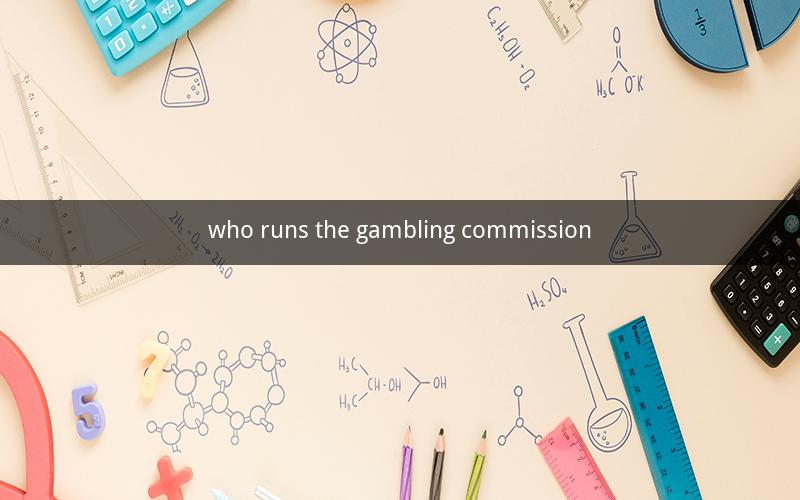
Table of Contents
1. Introduction to the Gambling Commission
2. The Role of the Gambling Commission
3. The Structure of the Gambling Commission
4. The Legal Framework of the Gambling Commission
5. Regulatory Powers of the Gambling Commission
6. Compliance and Enforcement Actions
7. The Impact of the Gambling Commission
8. Challenges Faced by the Gambling Commission
9. The Future of the Gambling Commission
10. Conclusion
1. Introduction to the Gambling Commission
The Gambling Commission is an independent body responsible for regulating the gambling industry in the United Kingdom. Its primary objective is to ensure that gambling is fair and safe for consumers. The commission operates under the Gambling Act 2005, which grants it the authority to license and regulate gambling operators, oversee gambling premises, and investigate complaints.
2. The Role of the Gambling Commission
The Gambling Commission plays a vital role in the gambling industry by:
Licensing and regulating gambling operators
Protecting consumers from unfair and unsafe gambling practices
Preventing crime and money laundering through gambling
Ensuring that gambling is conducted in a socially responsible manner
3. The Structure of the Gambling Commission
The Gambling Commission is composed of a Board of Directors, a Chief Executive, and several departments. The Board of Directors is responsible for setting the overall strategic direction of the commission, while the Chief Executive manages the day-to-day operations. The commission's departments include Policy, Legal, Enforcement, Compliance, and Licensing.
4. The Legal Framework of the Gambling Commission
The Gambling Act 2005 is the primary piece of legislation that governs the Gambling Commission's operations. It provides the legal framework for licensing and regulating gambling operators, overseeing gambling premises, and investigating complaints. Additionally, the commission has the power to issue guidance notes and codes of practice to provide further guidance on specific areas of regulation.
5. Regulatory Powers of the Gambling Commission
The Gambling Commission has several regulatory powers, including:
Licensing and renewing gambling operators
Issuing fines and sanctions for non-compliance
Suspending or revoking licenses
Investigating complaints and enforcing the law
Providing guidance and support to gambling operators
6. Compliance and Enforcement Actions
The Gambling Commission takes a proactive approach to ensuring compliance with its regulations. This includes:
Conducting regular inspections and audits
Investigating complaints and reports of non-compliance
Taking enforcement action against operators who breach the law
Working with other law enforcement agencies to combat crime and money laundering
7. The Impact of the Gambling Commission
The Gambling Commission has had a significant impact on the gambling industry, including:
Improving consumer protection and safety
Reducing crime and money laundering
Promoting responsible gambling
Ensuring fair and transparent gambling practices
8. Challenges Faced by the Gambling Commission
Despite its successes, the Gambling Commission faces several challenges, including:
Keeping pace with the rapidly evolving gambling industry
Balancing consumer protection with the need for innovation
Combating the rise of illegal gambling
Addressing concerns about problem gambling
9. The Future of the Gambling Commission
The Gambling Commission will continue to adapt and evolve to meet the changing needs of the gambling industry. Key priorities for the future include:
Expanding its regulatory powers to address new forms of gambling
Enhancing its enforcement capabilities
Improving consumer protection measures
Working with industry stakeholders to develop a more sustainable gambling sector
10. Conclusion
The Gambling Commission plays a critical role in regulating the gambling industry in the United Kingdom. By licensing and regulating gambling operators, protecting consumers, and preventing crime, the commission contributes to a fair, safe, and responsible gambling environment. The challenges ahead will require the commission to remain adaptable and proactive, but with its current structure and powers, it is well-equipped to face the future of gambling.
Questions and Answers
1. Question: What is the main objective of the Gambling Commission?
Answer: The main objective of the Gambling Commission is to ensure that gambling is fair and safe for consumers.
2. Question: What is the Gambling Act 2005?
Answer: The Gambling Act 2005 is the primary piece of legislation that governs the Gambling Commission's operations.
3. Question: What regulatory powers does the Gambling Commission have?
Answer: The Gambling Commission has the power to license and regulate gambling operators, issue fines and sanctions, and investigate complaints.
4. Question: How does the Gambling Commission ensure compliance with its regulations?
Answer: The Gambling Commission conducts regular inspections, investigates complaints, and takes enforcement action against operators who breach the law.
5. Question: What is the impact of the Gambling Commission on the gambling industry?
Answer: The Gambling Commission has improved consumer protection, reduced crime, and promoted responsible gambling.
6. Question: What challenges does the Gambling Commission face?
Answer: The Gambling Commission faces challenges such as keeping pace with the evolving gambling industry and addressing concerns about problem gambling.
7. Question: What are the key priorities for the future of the Gambling Commission?
Answer: The key priorities for the future include expanding regulatory powers, enhancing enforcement capabilities, and improving consumer protection measures.
8. Question: How does the Gambling Commission adapt to the changing gambling industry?
Answer: The Gambling Commission adapts by expanding its regulatory powers, enhancing its enforcement capabilities, and working with industry stakeholders.
9. Question: What role does the Gambling Commission play in preventing crime and money laundering?
Answer: The Gambling Commission plays a role in preventing crime and money laundering by overseeing gambling operators and investigating reports of suspicious activity.
10. Question: How does the Gambling Commission promote responsible gambling?
Answer: The Gambling Commission promotes responsible gambling by providing guidance to operators, conducting research on problem gambling, and working with industry stakeholders to develop responsible gambling initiatives.